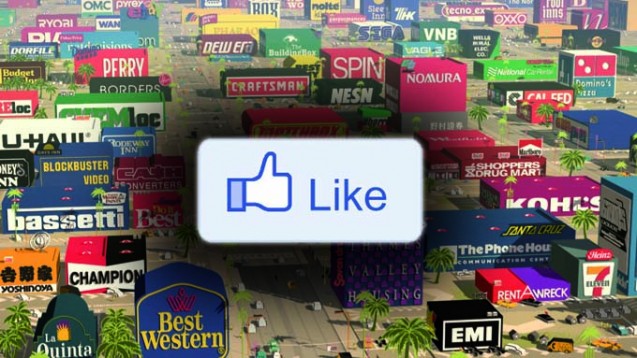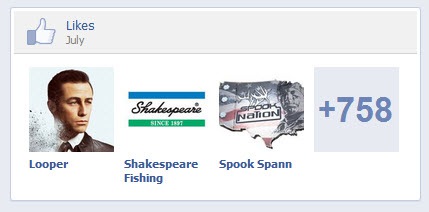About three weeks ago, I ran an ad campaign on Facebook for a fanpage that resulted in an increase of Likes from 100 to around 900. Success!
…or so I thought. After a week of posting content designed to engage the new audience and attract more new followers, the individual post Likes were averaging the same totals as prior to the campaign.
This was frustrating. My initial reaction was, “Hmm, maybe these ad-generated “Likes” that I’m getting are fake,” but all I had to go on was a few weeks’ worth of data and a hunch. That’s when I brought it up to Brent Csutoras of Kairay Media over a cup of coffee.
We came to the conclusion that there’s no way Facebook would stoop to generating fake Likes because of the enormous liabilities that would ensue. We blew it off and didn’t talk much about it again.
Then a bunch of articles came out last week covering a BBC investigation that alleges Facebook ad-generated Likes are not real: see money.msn.com, dailydot.com, and techcrunch.com.
After a second conversation with Brent this past weekend, together we decided to take a closer look at a number of Facebook ad campaigns which had low enough Like numbers to spot anomalies.
At first glance, the followers seem to be genuine. Most of them have profile pictures, cover photos, history, and activity levels. Then we found some interesting profiles like “Hilton,” who shows no activity except answering hundreds of Facebook polls and surveys.
Yet other profiles hadn’t had updates in more than a month, and a handful actually had no profile info at all, but these same accounts were extremely active, on a daily basis in some cases, at Liking Facebook pages. A pervasive red flag was that these profiles did not seem to have any discernible connection or affinity for the Facebook pages being advertised.
When we got into the actual Likes of these profiles, we started to see where the potential fraud was happening. These particular accounts all seemed to have an enormous number of Likes, with many totaling more than 10,000 and at a “Liking” rate of more than 500 a month.
In the first two weeks of July 2012, the profile below had accumulated more than 750 Likes:
These users seem to hit just about every Facebook page in existence, with sometimes five or more Likes in a single minute.
We found lots of profiles with the same pattern:
http://www.facebook.com/linda.meyer.940/favorites
http://www.facebook.com/rtspina/favorites
http://www.facebook.com/jasonxcraig/favorites?ref=pb
http://www.facebook.com/flaquis.carrillocamacho/favorites
http://www.facebook.com/nc4x4babe/favorites
http://www.facebook.com/RaivenStudios/favorites
http://www.facebook.com/carmen.l.carter2/favorites
http://www.facebook.com/linda.s.crawford1/favorites
http://www.facebook.com/teri.templeman/favorites
http://www.facebook.com/totto.tekno/favoritesWith this additional data from above compared against the BBC study, we are much more confident that something is going on with Facebook ads. But what exactly is it?
Here are a few theories we tossed around:
#1 Facebook is generating fake Likes through their ad network.
This obviously would have major negative backlash for Facebook, which just two months ago had the third largest IPO in history. There’s a lot for them to lose if this was discovered, but advertising viability is commonly listed as the number one concern for both the company and for shareholders.
#2 “Like” generating networks, similar to what you would find on fiverr.com, are using bots or compromised accounts in order to diversify their activity history and avoid getting banned.
It is a known tactic for spammers and bot writers to imitate behavior that makes the profile look more diversified and natural-looking in order to avoid detection and mass removal or account bans.
#3 Someone is using 3rd-party apps or compromised accounts to abuse the Facebook ads system in order to hurt Facebook, the company.
Hacker organizations like Anonymous have been rumored to be looking for ways to hurt Facebook, even though they deny it. It’s not unreasonable to believe a group might be out there working together to damage the credibility of Facebook’s only source of revenue.
Our Conclusion
We believe it is #2: someone or a group of someones is utilizing bot networks and compromised accounts to sell actions in Facebook, and the voluminous Liking is a byproduct of attempting to randomize any patterns that would identify their core network or their customers.
Last week’s Gizmodo article on bought Twitter followers adds some related credence to this theory. The Twitter followers are added through bot networks and compromised accounts.
It doesn’t help that Facebook doesn’t appear to be taking the allegations seriously. So far they have only responded that “We’ve not seen evidence of a significant problem. Neither has it been raised by the many advertisers who are enjoying positive results from using Facebook.”
In Facebook’s defense on the issue, the BBC study indicated only $10 was spent to garner 1,600 Likes in 24 hours, which would be less than $.01 per Like. Anyone running Facebook ads knows that you are never getting clicks that cheap and in that volume for that price.
The same is evident in one of our campaigns, although the initial one mentioned above was much worse. For example, when a fanpage received ~100 new Likes during a Facebook ad campaign, only 18 were a direct result of the ad itself.
So is Facebook aware that this is going on, but is turning a blind eye because these fraudulent, bot-created Likes are not being procured via the Facebook ad network?
Have you seen any trends like this lately with your ad campaigns? If so, please comment below. I’d love to hear about them and any additional theories that might be out there.
Facebook Ads: What Are You Really Paying For? | Mount Kisco NY Real Estate
Leave a reply





